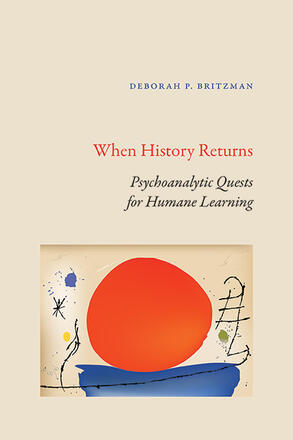
When History Returns
Psychoanalytic Quests for Humane Learning
Alternative formats available from:
Turns to theories and cultural representations of psychosocial life to reflect on, and better understand, the challenges of learning in times of social strife.
Description
When History Returns brings together psychoanalytic theories of learning with the antinomies of social strife. From a psychoanalytic perspective, history returns through transitional scenes of inheriting a past one could not make, experiencing a present affected by what came before, and facing a future one can neither know nor predict. Taking such scenes as the subject of education, Deborah P. Britzman provides new approaches and vocabulary for conceptualizing experience and understanding, as expressed in psychoanalysis, literature, film, clinical case studies, and warm pedagogy. Britzman argues that novel quests for humane responsibility take hold in the fallout of understanding, in the feel of history, in imaginative dialogues and missed encounters, and in searches for friendship, belonging, and affiliation. Each chapter charts these quests in contemporary education, carrying readers into the heart of learning and the emotional situations that urge the transitions of difficult knowledge into care for thinking and the questions that follow.
Deborah P. Britzman is the author of Lost Subjects, Contested Objects: Toward a Psychoanalytic Inquiry of Learning; The Very Thought of Education: Psychoanalysis and the Impossible Professions; and A Psychoanalyst in the Classroom: On the Human Condition in Education, all published by SUNY Press, among many other books.
Reviews
"This book constitutes a rare combination of highly original theoretical thinking with literary style and structure. Its contribution to the field of psychoanalytic-educational research (and far beyond it) is huge. When History Returns both connects the psychoanalytic and the educational 'task'—placing the whole issue of education within a very broad context that touches on history, social thinking, dream work, and the topic of transference, among many other topics—and enacts, in its very writing, the same breadth and depth to which it points and aims. It is a theoretical-literary document that is not only rare in the intellectual challenge it offers but also rare in its beauty." — Dana Amir, author of Psychoanalysis on the Verge of Language: Clinical Cases on the Edge